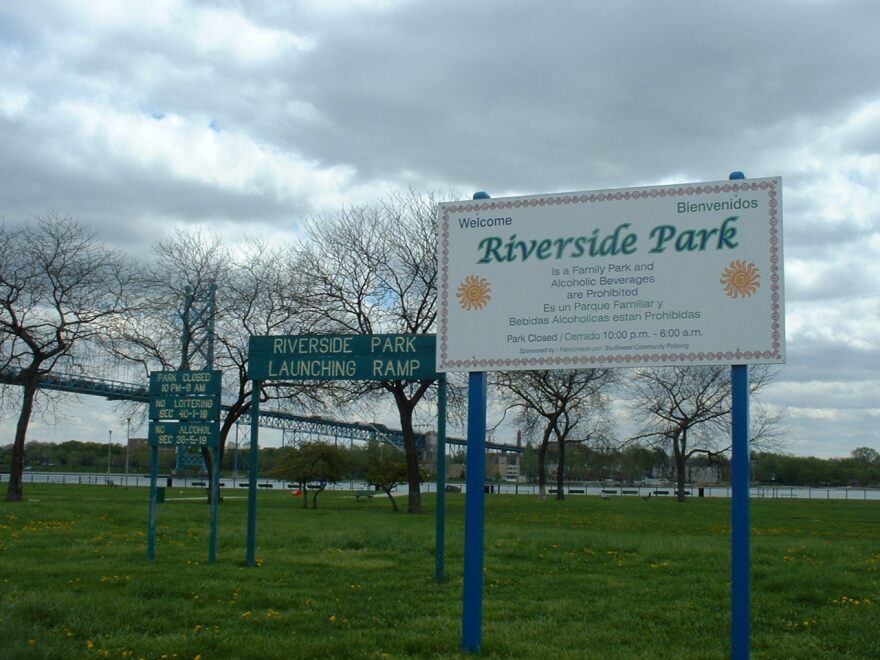The Detroit City Council is set to vote on a riverfront land deal heavily touted by Mayor Mike Duggan today.
But some council members say there are too many unanswered questions about a key part of it.
The deal would roughly work like this: The Detroit International Bridge Company, which owns the Ambassador Bridge, would pay Detroit $3 million and transfer almost five acres to the city of Detroit. The city would use that money to expand and upgrade facilities at nearby Riverside Park.
In exchange — pending certain approvals — the company would get an adjacent piece of land it’s long coveted to build a potential twin span to Canada. That’s despite the fact that the Canadian government opposes that idea, and is financing another, publicly owned bridge further downriver.
If the DIBC gets the required permits to actually go ahead with the project, it would pay the city another $2 million. The company is also required to replace windows at Michigan Central Station, a massive decayed landmark that has remained blighted under the company’s ownership.
Council member Raquel Castañeda-Lopez thinks that’s a big problem. She represents the southwest Detroit district where this will take place, and says answers to some key questions about that second span, including an assessment from the Michigan Department of Environmental Quality, are still forthcoming.
“This raises some red flags as to why the administration is pushing this deal so hard,” Lopez says.
Mayor Mike Duggan has urged the council to approve the deal, touting it as a “once-in-a-generation” opportunity to create a “marquee park” and expand access to recreational activities along Detroit’s west riverfront.
Lopez says she supports that, but park improvements are only part of the deal. “The real question is, at what cost?” she says. “And so the deal is about accountability and transparency, or the lack of those things.”
Lopez is especially concerned there hasn’t been enough focus on implications of a potential second span, and whether the deal contains enough protections for city and community interests if a second span is built — or if the Bridge Company doesn’t follow through on its end of the deal.
Duggan’s office insists that won’t happen. “This agreement is a legally binding document with provisions that protect the city and DIBC if either party violates the agreement,” Duggan’s chief of staff, Alexis Wiley, wrote in a response to questions submitted by Lopez’s office.
As for the bridge language, “all questions related to construction of a second span should be referred to the work group proposed by the honorable members of the Planning and Economic Development Committee,” Wiley wrote in response to a number of questions.
Lopez says that’s a problem because that work group does not yet exist.






